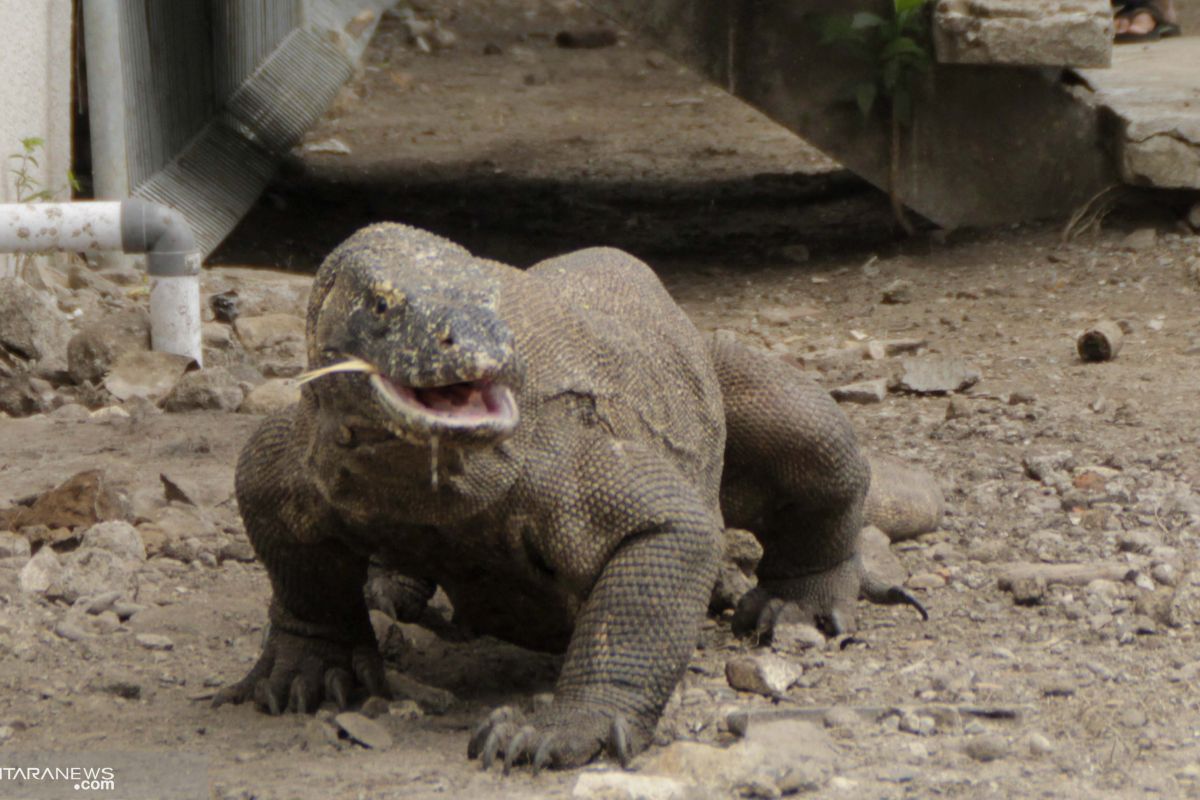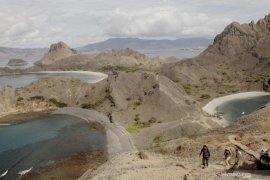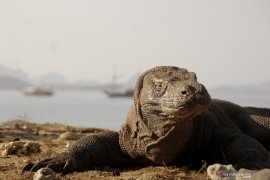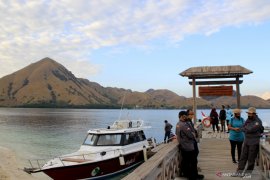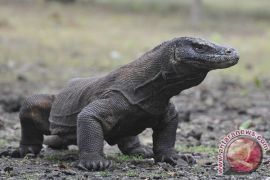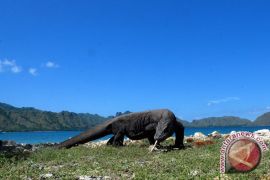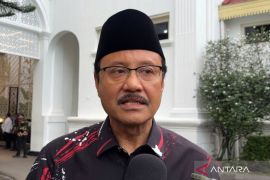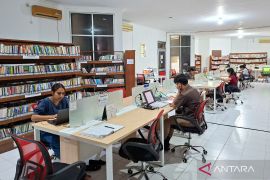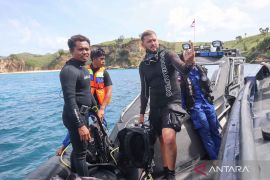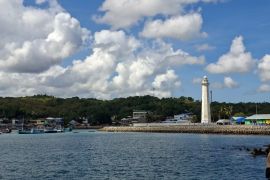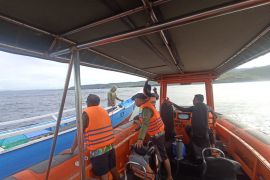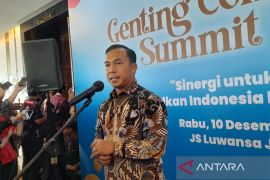Komodo Island is located within the Komodo National Park (TNK) that spans 137 thousand hectares, of which 60 percent constitutes waters. The park has 147 islands, including five major islands: Gili Motang Island, Padar Island, Nusa Kode Island, Komodo Island, and Rinca Island.
The TNK is home to 2,800 Komodo dragons (Veranus Komodoensis), including 1,040 heads on Rica Island, while the rest live on Komodo Island, Giling Motang Island, and other smaller islands.
Related news: NTT confirms temporary closure of Komodo Island from early 2020
In 1977, TNK was named a biosphere reserve by the United Nations Educational, Scientific and Cultural Organization (UNESCO), and in 1991, it was declared a UNESCO World Heritage Site. In 2012, it was listed as the New 7 Wonders of Nature sites.
The TNK recorded revenue amounting to Rp32 billion from tourist visits to the park during 2018, an increase from Rp29 billion in the previous year. A total of 176,830 tourists, comprising 121,409 foreigners and 55,421 Indonesians, had visited the TNK last year, a surge from 119,599 visitors in 2017, and a drastic increase from 80 thousand tourists in 2014, according to Lukita Awang, head of TNK.
During a visit to Labuan Bajo, West Manggarai District, East Nusa Tenggara (NTT) Province, President Joko Widodo (Jokowi) confirmed that Komodo Island will be developed into a conservation area and only few tourists, willing to dig deeper into their pockets, will be allowed to land on the island to see the Komodo Dragon, the world’s only surviving giant lizards in the wilderness.
Related news: Jokowi consents to shut down Komodo Island: spokesman
Komodo Island will be made a very exclusive tourist spot, while Rinca Island will remain open to tourists, although their numbers will also be limited, but not as strict as those on Komodo Island.
NTT Governor Viktor Bungtilu Laiskodat had earlier explained that his plan to temporarily close Komodo Island for about a year and later to raise the entry ticket fare to the island to US$500 per foreign tourist was aimed at conservation purposes and boosting revenue for the local government.
"$500 is a donation for the development of the world ecosystem," the governor stated.
The closure will only be applicable for Komodo Island. Tourists can still visit Rinca Island, Padar Island, and others, he noted.
Tourists will only be allowed to tour around Komodo Island by boat, but they will not be allowed to land on the island, Laiskodat clarified.
However, President Jokowi has estimated that the renovation of Komodo Island would take two or three years since it is a challenging task, and its budget would reach some Rp200 million up to Rp500 million a year.
Komodo Island will be developed in an integrated manner with Rinca Island and Labuan Bajo, which is located in proximity to the island, and it will prioritize conservation. Hence, the quota of tourist visits must be in accordance with the carrying capacity of the islands. A limited cabinet meeting will soon be held to discuss the grand design to connect Labuan, Rinca, and Komodo Islands.
The government fully supports the rearrangement of East Nusa Tenggara’s tourist destinations. Various infrastructure projects, such as an airport, a seaport, and clean water supply facility, are being constructed in the province located in the eastern part of the country.
Dr James Adam, economist at the International Fund for Agricultural Development (IFAD), remarked that Labuan Bajo can become the second-best tourist destination after Bali.
He believed that with the central government's special attention given to tourism in NTT, the tourism industry could become the backbone of the province’s economy.
Related news: East Nusa Tenggara offers many more tourist spots
Labuan Bajo is one of the 10 priority tourist destinations designated by the government as "New Bali." The nine other destinations are Borobudur in Central Java; Mandalika on Lombok Island, West Nusa Tenggara; Bromo-Tengger-Semeru in East Java; Pulau Seribu in North Jakarta; Lake Toba in North Sumatra; Wakatobi in Southeast Sulawesi; Tanjung Lesung in Banten; Morotai in the northern region of Halmahera in the Maluku Islands; and Tanjung Kelayang in Belitung, Bangka Belitung.
The Indonesian Tourism Ministry has outlined a target to attract some 20 million foreign tourists in 2020. During the January-May 2019 period, Indonesia had received 6.37 million foreign tourists, a 2.7 percent rise as compared to that during the corresponding time frame in the previous year.
During May 2019, the number of foreign tourists visiting the country had reached 1.256 million. Tourism Minister Arief Yahya is optimistic that at least 18 million foreign tourists would arrive in Indonesia this year.
Related news: Closure of Komodo Island feared to shake tourism industry
Related news: Government targets 20 million foreign tourists in 2019
Editor: Sri Haryati
Copyright © ANTARA 2019
